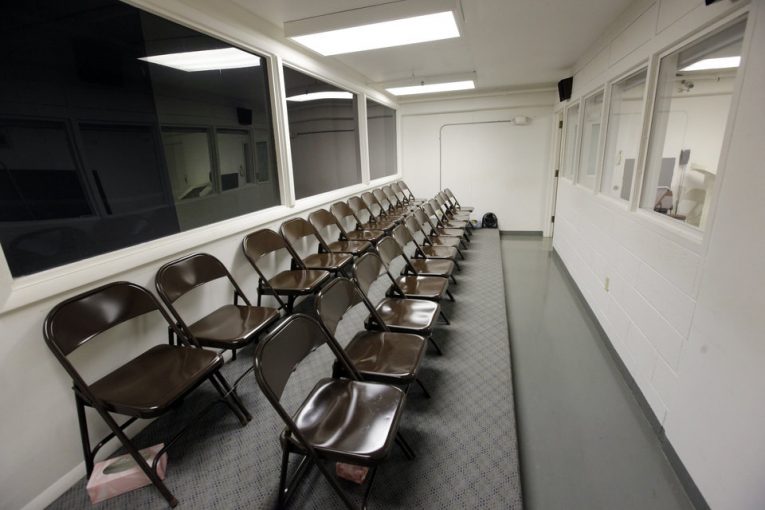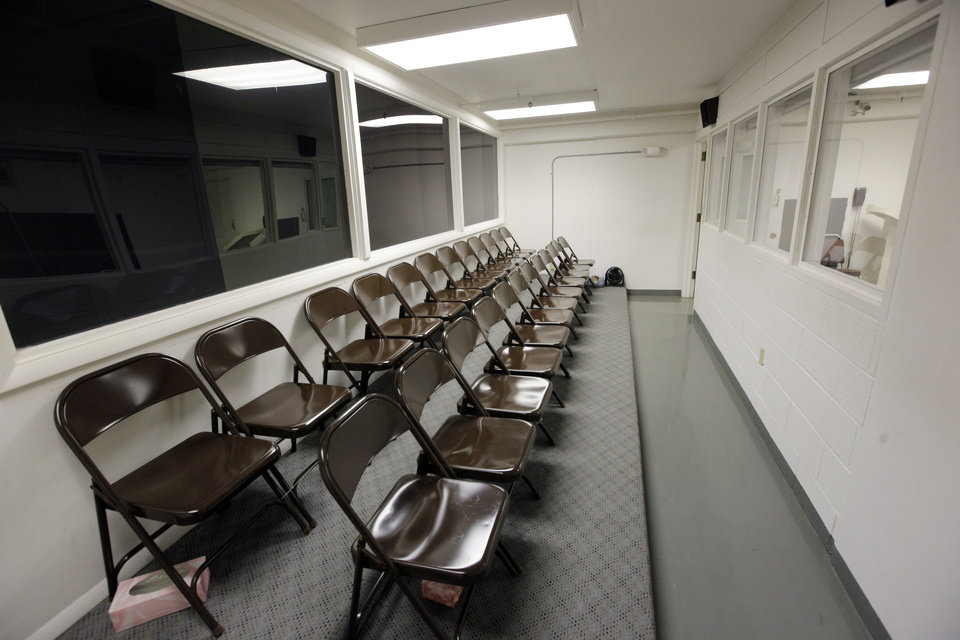

By Katherine Coviello and Sophia Barberini
PITTSBURG COUNTY, OK – Wade Greeley Lay, on death row in Oklahoma after being convicted of murder, is set to be executed Jan. 6, despite questions of his mental competency—Lay’s attorneys have petitioned for a stay of execution after a Pittsburg County judge ordered a competency hearing for Lay.
However, the next jury call in Pittsburg County is not until after Lay’s scheduled execution.
Because Oklahoma law requires a jury to decide a prisoner’s competency to be executed, Lay’s attorneys were forced to file for a stay of execution, after the warden of Oklahoma state did not take any action to initiate proceedings.
One of Lay’s attorneys, Sarah Jernigan, has highlighted the injustice in Lay’s potential execution prior to a competency hearing, noting, “It would violate the Eighth Amendment to execute Wade Lay, because he believes he is being killed as a part of a government plot to silence him.”
Lay’s history with mental illness has been well documented, argued Jernigan, explaining, “Mr. Lay’s delusions are well-known and have been apparent to everyone who interacts with him for decades, so the State’s failure to initiate competency proceedings until now is inexplicable.”
Most recently, in September, Dr. Richart DeMier evaluated Lay’s competency and confirmed the over a decade-old diagnosis of schizophrenia made in 2009 by Dr. Xavier Amador, citing consistent delusional beliefs and disorganized speech and behavior.
Dr. DeMier said Lay’s “persecutory delusions center around false beliefs that there is a conspiracy among courts and possibly his attorneys to use his execution to ‘silence him’ so that his explanations about the U.S. Constitution and the proper form of U.S. government do not come to light.”
Dr. DeMier also noted that Lay fails to recognize his own mental illness, a symptom of schizophrenia called anosognosia, and argues that what Lay claims cannot be excused as conspiracy theories.
“In Mr. Lay’s mind, his knowledge coming to light would have an undeniably persuasive effect causing the existing order to topple, therefore, powerful and wealthy individuals, including judges, have good reason to ensure he is silenced and maintain the status quo favorable to them,” explained Dr. DeMier.
Though Dr. DeMier admits that Lay can understand that he is going to be executed, Dr. DeMier argues that he does not fully grasp why he is being executed.
“While [Lay] can parrot that he is scheduled for execution due to the murder committed during the bank robbery, it is likely that he views that as nothing more than a pretext for the parties involved in the conspiracy to silence him,” Dr. DeMier stated, adding, “It is this rigid and unwavering belief that is delusional, and it is this delusional belief that is the immediate focus of his attention when considering his execution.”
Dr. DeMier added, “When asked specifically why he was being punished by the legal system, [Lay] spoke tangentially about the Bible, the writings of Dostoevsky and Jefferson, and the appropriate societal goals of punishment.”
Lay’s attorneys also claim that his delusions led him to making a multitude of poor decisions during his trial. Not only did he dismiss his attorneys and represent himself, Lay also rejected a plea deal that would have saved his life.
Due to Dr. DeMier’s conclusions, Lay’s counsel requested Warden Farris to initiate proceedings specifying the urgency of the matter given the looming execution. Warden Farris responded a week and a half later, only confirming receipt and noting that he would “inquire whether there is good reason to believe inmate Lay has become insane,” without additional instruction.
Lay attorney Jernigan noted, “In the posture of this case, a non-committal response after a week and half is insufficient. If Mr. Lay simply waits for the warden to act, he risks his execution date drawing too near to allow time to litigate his competency claim. He also risks being penalized if he does need to seek judicial recourse.”
Having submitted evidence regarding Lay’s mental illness and incompetency, Jernigan believes that Warden Farris’ refusal to comply “is a clear abuse of discretion” in response to this appeal.
“The question for this Court in this mandamus action is whether the warden has abused his discretion in concluding that there is no good reason to believe Petitioner [Lay] is incompetent to be executed. This is an objective standard; the question is not whether the warden himself personally believes Mr. Lay is incompetent,” concluded Jernigan.

